Audio available in app
Brain plasticity can compensate for sensory deficits from "summary" of Phantoms in the Brain by V. S. Ramachandran
Ramachandran demonstrates how the brain is capable of adapting to sensory deficits through a phenomenon known as brain plasticity. This remarkable ability allows the brain to reorganize and rewire itself in response to changes in sensory input. For example, when one sense is impaired or lost, such as in the case of blindness or deafness, the brain can compensate by reallocating resources and strengthening other sensory pathways. This results in enhanced perception and processing of information from the remaining senses. In the case of phantom limb pain, where amputees experience pain or sensations in a limb that has been removed, the brain undergoes a process of reorganization to adapt to the new sensory input. Through a series of experiments and observations, Ramachandran shows how the brain can create new neural connections and representations to account for the missing limb, effectively "filling in the gaps" left by the absence of sensory feedback. This phenomenon highlights the brain's remarkable ability to adapt and compensate for sensory deficits through plasticity. Furthermore, Ramachandran discusses cases where individuals with sensory deficits, such as those with congenital blindness or deafness, develop heightened abilities in other areas, such as touch or hearing. This suggests that the brain is capable of repurposing neuronal resources to enhance remaining senses in the absence of others. By tapping into the brain's plasticity, individuals can overcome limitations imposed by sensory deficits and even achieve superior levels of performance in certain tasks.- Ramachandran's exploration of brain plasticity provides compelling evidence for the brain's remarkable capacity for adaptation and compensation in the face of sensory deficits. This phenomenon sheds light on the incredible flexibility and resilience of the human brain, offering hope for individuals grappling with sensory impairments.


